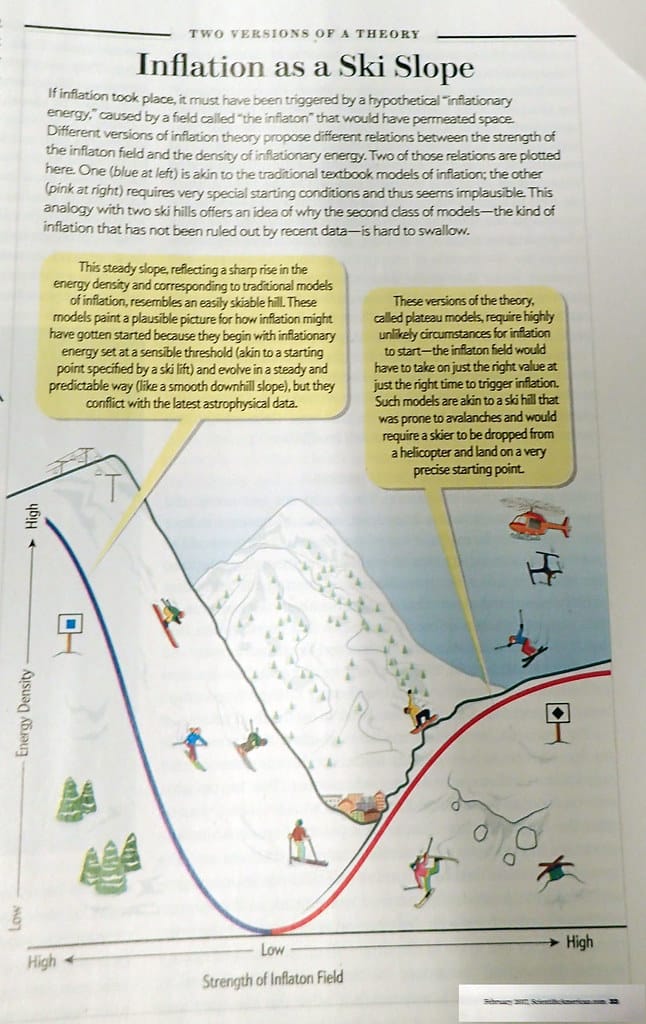US Abandons Hunt for Cosmic Inflation Signal in $800 Million Blow to Cosmology
The United States has quietly withdrawn from the LiteBIRD mission, a groundbreaking $800 million space telescope designed to detect the faint echoes of cosmic inflation—the explosive expansion that occurred in the universe's first fraction of a second. This decision marks a significant setback for American cosmology and hands leadership of one of physics' most ambitious quests to international partners.
The Science Behind the Search
Cosmic inflation theory suggests that the universe underwent an exponential expansion just 10^-36 seconds after the Big Bang, stretching space itself faster than light. This rapid expansion would have generated gravitational waves, leaving a distinctive fingerprint in the cosmic microwave background (CMB)—the afterglow of the Big Bang that permeates space.
LiteBIRD (Light satellite for the studies of B-mode polarization and Inflation from cosmic background Radiation Detection) was specifically designed to detect these primordial gravitational waves by measuring B-mode polarization patterns in the CMB. Finding this signal would provide direct evidence of inflation and potentially reveal new physics beyond the Standard Model.
America Steps Back from the Cosmic Stage
The U.S. withdrawal from LiteBIRD represents more than just a budget cut—it's a strategic retreat from leading-edge cosmology research. Originally planned as a collaborative effort between NASA, the European Space Agency, and the Japan Aerospace Exploration Agency (JAXA), the mission will now proceed as a primarily Japanese-led initiative with European support.
NASA's decision comes amid budget constraints and shifting priorities within the space agency's astrophysics division. The James Webb Space Telescope's $10 billion price tag and other flagship missions have strained resources, forcing difficult choices about which projects to support.
Global Impact and Scientific Consequences
The withdrawal has immediate consequences for American scientists who had planned to participate in the mission. Dr. Adrian Lee from UC Berkeley, who led the U.S. LiteBIRD team, noted that American researchers will now have limited access to data and reduced influence over the mission's scientific direction.
This decision also reflects broader trends in international science collaboration. While the U.S. remains a dominant force in space exploration, other nations are increasingly capable of leading major missions independently. Japan's successful Akatsuki Venus probe and the European Space Agency's Gaia mission demonstrate this shifting landscape.
What This Means for Cosmic Inflation Research
LiteBIRD's mission remains scientifically crucial, with or without U.S. participation. The satellite, scheduled for launch in 2032, will map the entire sky with unprecedented sensitivity, potentially detecting the inflationary signal that has eluded ground-based experiments.
Previous attempts to detect this signal have faced significant challenges. The BICEP2 experiment initially claimed detection in 2014, only to later reveal the signal was contaminated by galactic dust. LiteBIRD's space-based platform and advanced dust-removal techniques should provide cleaner measurements.
The mission's success could revolutionize our understanding of fundamental physics. Detecting primordial gravitational waves would not only confirm inflation theory but could also provide insights into quantum gravity, extra dimensions, and the nature of dark energy.
Broader Implications for American Science Leadership
This withdrawal occurs as China rapidly expands its space science capabilities and Europe consolidates its position as a major player in fundamental physics research. The U.S. risks ceding leadership in theoretical cosmology, much as it has in particle physics, where the Large Hadron Collider represents European rather than American scientific leadership.
The decision also highlights the challenge of maintaining long-term scientific commitments across changing political administrations. Major space missions require decades of sustained funding and political support—resources that are increasingly difficult to secure.
Looking Forward
While the U.S. withdrawal from LiteBIRD is disappointing, it doesn't signal the end of American cosmic inflation research. NASA continues to support ground-based experiments and maintains involvement in other cosmology missions. However, the agency's reduced role in this fundamental quest represents a missed opportunity to lead one of physics' most important investigations.
The search for cosmic inflation's signature continues, but America will now watch from the sidelines as other nations potentially make one of the most significant discoveries in modern cosmology. In the high-stakes game of fundamental physics, this withdrawal may prove to be a costly strategic error—one that echoes long after the universe's own inflationary epoch has been confirmed or refuted.
